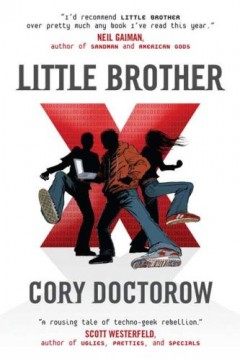Few philosophies have a greater mutual suspicion and natural antipathy to each other than libertarianism and ecology. This is not surprising, since the former takes the human individual and the latter the nonhuman environment, as its sovereign concern. But since our state-plagued era has seen the degradation of both individual liberties and the quality of the environment, we ought to question the degree to which these exist in an inverse relationship. Libertarians who wish to learn how to accommodate ecological ideas could do no better than to begin with a short 1975 novel by Ernest Callenbach, not because the novel has any libertarian intent (it clearly doesn’t), but because the principle of political decentralization, which Callenbach sees as an ecological necessity, leads him unconsciously, almost blindly, in a libertarian direction.
Ecotopia was clearly born out of the political and economic turmoil of the 1970s. As the book describes it, “The persistent inflation and recession of the seventies had caused widespread misery and undermined Americans’ confidence in economic progress.… And chronic Washington scandals had greatly reduced faith in central government.” Of course there was also a war that dragged on and on despite widespread opposition. In other words, it was a time much like our own, which may be why there has been a renewal of interest in the book in the last few years. A New York Times article from 2008 called it “The Novel that Predicted Portland” for its advocacy of green lifestyles. Well, not quite, as we shall see.
While contemporary greens tend to advocate greater power for national and international governmental agencies to regulate on behalf of the environment, Callenbach’s book was informed by decentralist and anti-authoritarian ideas of the New Left. These led him to a solution that had long since been thought impossible in American politics: secession. Ecotopia is also the name of a new nation in the novel, consisting of what used to be Oregon, Washington, and northern California, which seceded from the United States in 1980.1 In 1999, Will Weston, a journalist from what remains of the United States, sets out to write a series of articles about Ecotopian life. These, alternating with Weston’s private diary entries, comprise the novel.
Interestingly, Quebec seceded from Canada in the early 1980s, and Weston hints that parts of the Soviet Union will soon break away. At the time, the first prediction must have seemed like a much safer bet than the second, though subsequent history proved the opposite to be the case. ↩










